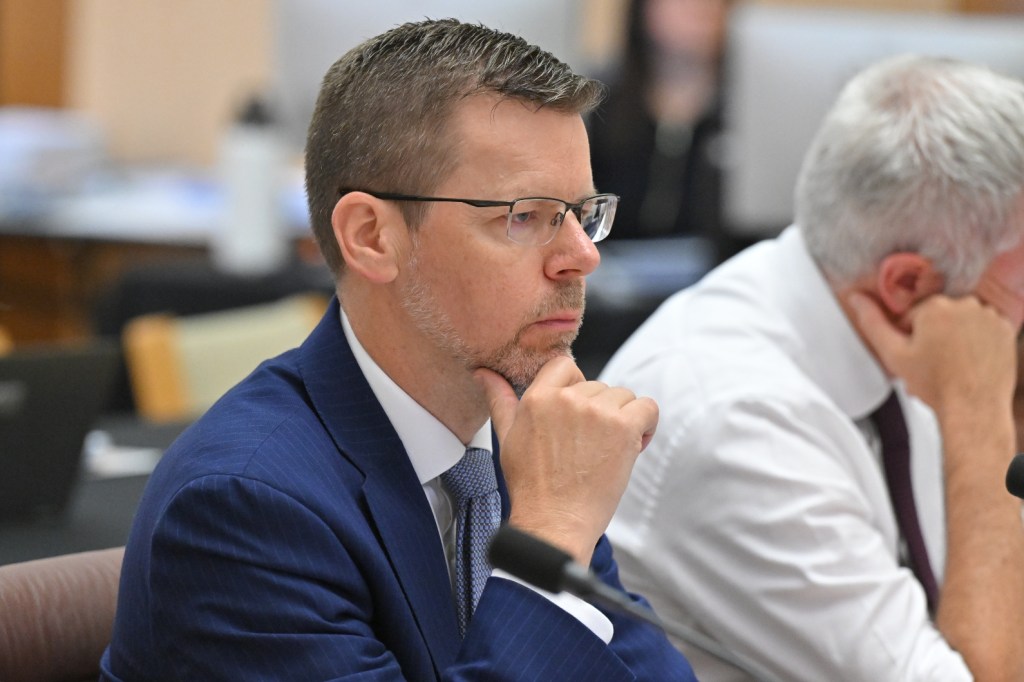
A new independent body will steward changes to the tertiary education system in support of the Future Made in Australia policy and Australian Universities Accord.
The Australian Tertiary Education Commission (ATEC) will work to drive growth and meet national skills needs through equity measures.
Education secretary Tony Cook will chair a Universities Accord implementation committee, supported by:
- Professor David Lloyd (vice-chancellor, University of South Australia)
- Professor Verity Firth (vice-president societal impact, equity and engagement, University of New South Wales)
- Professor Stephen Duckett (honorary enterprise professor, University of Melbourne)
- Professor Julia Horne (University of Sydney)
- Professor Tom Calma AO (Kungarakan Elder and 2023 Senior Australian of the Year)
- Professor Barney Glover AO (commissioner of Jobs and Skills Australia)
- Jenny Dodd (CEO, TAFE Directors Australia)
- Natalie James (Secretary of the Department of Employment and Workplace Relations, ex-officio member)
- Ben Rimmer (Deputy Secretary, Department of Education, ex-officio member)
In the short term, these include a range of measures that will help get students from lower socio-economic backgrounds into fields of study they may not have otherwise considered. Part of this is improving cooperation between the VET and university sectors. To this end, $27.7 million over four years will go towards the harmonisation of the two education systems.
Greater attention will be paid to the effects of socio-economic and CALD status on educational attainment and experiences of education and training.
Education Minister Jason Clare said higher education reform would provide a double dividend by expanding the possible workforce.
“Under Bob Hawke and Paul Keating, the number of Australians finishing high school jumped from around 40 per cent to almost 80 per cent. That was nation-changing. Now we have to take the next step,” he said.
“This budget sets a goal of 80 per cent of the workforce with a TAFE or uni qualification by 2050, and funds key reforms to get us there.
“A big part of this is helping more kids from the suburbs and regions get a crack at uni and succeed when they get there.”
To this end, $1.0 million will fund inquiry into racism in the universities sector. The inquiry will examine the prevalence and impact of racism, developing recommendations to ensure a culturally safe environment for students and staff. This will be led by race discrimination commissioner Giridharan Sivaraman with support from the Australian Human Rights Commission (AHRC).
The study will provide an interim report to be delivered by December 31, 2024, and a final report by June 30, 2025.
“There is no place for antisemitism, Islamophobia or any type of racism in our universities, or anywhere else, and there is nothing more important than the safety of students and staff on campus,” said Clare.
“This study responds to a recommendation of the Universities Accord and will help to make our universities safer places for students and staff.”
Charles Darwin University will receive $24.6 million over four years from 2024–25 and an additional $72.7 million from 2028 to 2035 to establish a new medical school for the Northern Territory with 40 new commencing medical students per year from 2026.
These changes add to other higher education reforms announced ahead of budget day, as part of the government’s response to the Australian Universities Accord.
A focus on greater equality of access to training to develop key skills will enable faster workforce growth than would have been possible otherwise. It’s notable the carrots offered to students and training organisations offer a carrot for prosecuting the government’s agenda, rather than the debt stick of job-ready graduates, which failed to have the intended effect.
Higher education loans like HELP will now be indexed to be the lower of the Consumer Price Index (CPI) or the Wage Price Index (WPI) at a cost of $239.
This change will be retroactive from 1 June 2023, winding back some of the additional debts incurred by students in last year’s indexation.
Student loan indexation has been historically pegged to CPI. In a low inflation environment, this meant increases in student debt remained relatively low.
Last year’s CPI spike saw an historically high indexation of 7.1%, erasing the progress many university graduates had made paying off their student loans.
The 2023 indexation rate based on WPI would only have been 3.2 per cent.
A new Commonwealth Prac Payment will help support 73,000 students (revised from the originally announced number of 68,000) training in high-demand professions like nursing, midwifery and social work. The $ 319-a-week payment will help address the placement poverty that has prevented students from poorer backgrounds from pursuing these professions.
A $350.3 million package will support more fee-free bridging courses, widening alternative entry pathways to university. This is expected to increase the number of students taking part in these courses by 40 per cent by 2030 and double the number of students by 2040.
READ MORE:
Universities Accord final report: What is it and what it recommends

